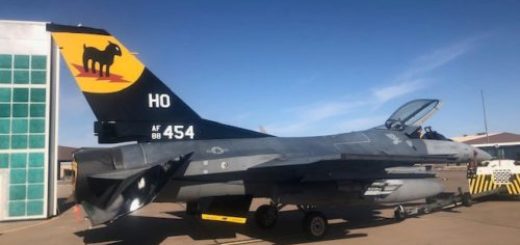Baykar Sets Up Strategic Drone Maintenance Hub in Morocco Expanding African Reach

{loadposition bannertop}
{loadposition sidebarpub}
Turkish drone manufacturer Baykar has established a subsidiary in Morocco to set up a maintenance facility for the unmanned aerial vehicles (UAVs) it has sold to Rabat, according to Middle East Eye. The subsidiary, named “Atlas Defence,” was officially registered with the Moroccan Trade Registry on December 5, 2024. According to an announcement published in Morocco’s Official Gazette No. 5857 on January 29, 2025, the Rabat-based company has a capital of 2.5 million dirhams ($680,000).
Follow Army Recognition on Google News at this link
In April 2021, Morocco ordered 13 Bayraktar TB2 drones for $70 million, receiving the first batch in September along with support infrastructure and a drone operations center (Picture source: Baykar)
This initiative is part of Baykar’s broader strategy to expand its international operations, particularly in the African UAV market. By establishing this facility, the company aims to enhance its support capabilities for regional customers. Additionally, the investment is expected to contribute to Turkish-Moroccan diplomatic and economic relations by creating jobs and supporting the local economy. While military equipment sales generally involve government-to-government agreements, having an industrial presence in a partner country can further strengthen bilateral cooperation.
Morocco has already been a major Baykar client, having procured Bayraktar TB2 drones. In April 2021, the country placed an order for 13 units, valued at approximately $70 million, with the first batch delivered in September of that year. The contract also included four ground stations, a configurable simulation system, a digital tracking infrastructure, and a drone operations center at Moroccan airbases.
Moroccan military personnel underwent training in Turkey to operate these drones, with the first group completing their program in September 2021. Since then, Morocco has shown increased interest in Turkish defense equipment, exploring the possibility of acquiring Bayraktar Akıncı drones, a more advanced platform with a greater payload capacity and enhanced mission capabilities.
Baykar’s establishment in Morocco is part of a broader trend of military cooperation between the two nations. Turkey has emerged as a key player in the armed drone sector, attracting multiple international clients. Morocco, on its side, is seeking to strengthen its defense autonomy and modernize its armed forces. The maintenance facility for Bayraktar TB2 drones, and potentially Akıncı drones in the future, would enable Morocco to optimize its fleet’s operational readiness.
Despite uncertainties regarding the extent of local production, Baykar’s investment aligns with its strategy of expanding into emerging markets. The company has already begun constructing a factory in Ukraine, which is expected to produce up to 120 drones annually, and has also set up an assembly line in Saudi Arabia. While the Moroccan facility is comparatively smaller, it underscores Baykar’s intention to establish a lasting presence in Africa.
As part of its efforts to develop a domestic defense industry, Morocco has also partnered with Israeli firm BlueBird Aero Systems to build a drone factory. However, this project, initiated in April 2024, has faced delays due to ongoing conflicts in Gaza.
The collaboration between Morocco, Turkey, and Israel in defense and technology reflects a broader objective of modernizing Morocco’s armed forces and reducing reliance on foreign suppliers. Although Baykar’s new Moroccan subsidiary is not a full-scale production facility, it represents a step toward strengthening strategic ties between Rabat and Ankara while enhancing Turkey’s industrial presence in Africa.

{loadposition bannertop}
{loadposition sidebarpub}
Turkish drone manufacturer Baykar has established a subsidiary in Morocco to set up a maintenance facility for the unmanned aerial vehicles (UAVs) it has sold to Rabat, according to Middle East Eye. The subsidiary, named “Atlas Defence,” was officially registered with the Moroccan Trade Registry on December 5, 2024. According to an announcement published in Morocco’s Official Gazette No. 5857 on January 29, 2025, the Rabat-based company has a capital of 2.5 million dirhams ($680,000).
In April 2021, Morocco ordered 13 Bayraktar TB2 drones for $70 million, receiving the first batch in September along with support infrastructure and a drone operations center (Picture source: Baykar)
This initiative is part of Baykar’s broader strategy to expand its international operations, particularly in the African UAV market. By establishing this facility, the company aims to enhance its support capabilities for regional customers. Additionally, the investment is expected to contribute to Turkish-Moroccan diplomatic and economic relations by creating jobs and supporting the local economy. While military equipment sales generally involve government-to-government agreements, having an industrial presence in a partner country can further strengthen bilateral cooperation.
Morocco has already been a major Baykar client, having procured Bayraktar TB2 drones. In April 2021, the country placed an order for 13 units, valued at approximately $70 million, with the first batch delivered in September of that year. The contract also included four ground stations, a configurable simulation system, a digital tracking infrastructure, and a drone operations center at Moroccan airbases.
Moroccan military personnel underwent training in Turkey to operate these drones, with the first group completing their program in September 2021. Since then, Morocco has shown increased interest in Turkish defense equipment, exploring the possibility of acquiring Bayraktar Akıncı drones, a more advanced platform with a greater payload capacity and enhanced mission capabilities.
Baykar’s establishment in Morocco is part of a broader trend of military cooperation between the two nations. Turkey has emerged as a key player in the armed drone sector, attracting multiple international clients. Morocco, on its side, is seeking to strengthen its defense autonomy and modernize its armed forces. The maintenance facility for Bayraktar TB2 drones, and potentially Akıncı drones in the future, would enable Morocco to optimize its fleet’s operational readiness.
Despite uncertainties regarding the extent of local production, Baykar’s investment aligns with its strategy of expanding into emerging markets. The company has already begun constructing a factory in Ukraine, which is expected to produce up to 120 drones annually, and has also set up an assembly line in Saudi Arabia. While the Moroccan facility is comparatively smaller, it underscores Baykar’s intention to establish a lasting presence in Africa.
As part of its efforts to develop a domestic defense industry, Morocco has also partnered with Israeli firm BlueBird Aero Systems to build a drone factory. However, this project, initiated in April 2024, has faced delays due to ongoing conflicts in Gaza.
The collaboration between Morocco, Turkey, and Israel in defense and technology reflects a broader objective of modernizing Morocco’s armed forces and reducing reliance on foreign suppliers. Although Baykar’s new Moroccan subsidiary is not a full-scale production facility, it represents a step toward strengthening strategic ties between Rabat and Ankara while enhancing Turkey’s industrial presence in Africa.






